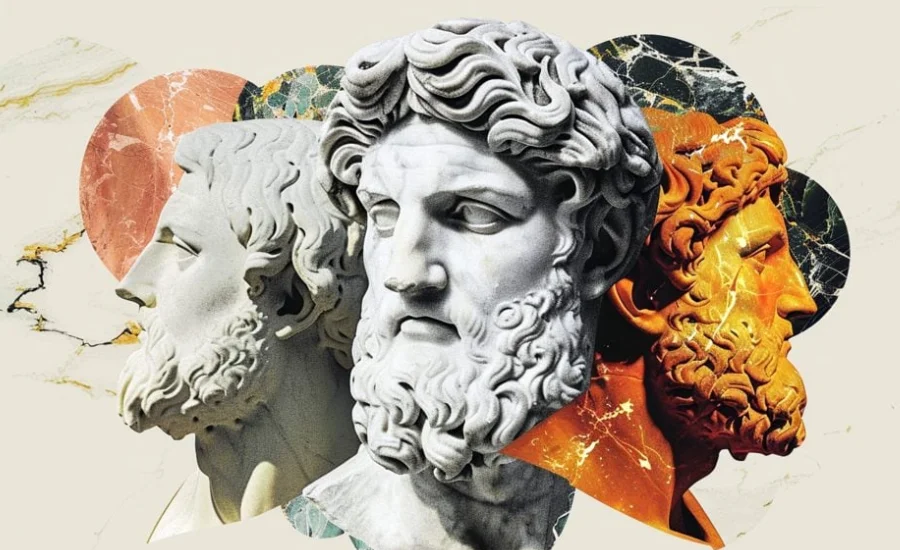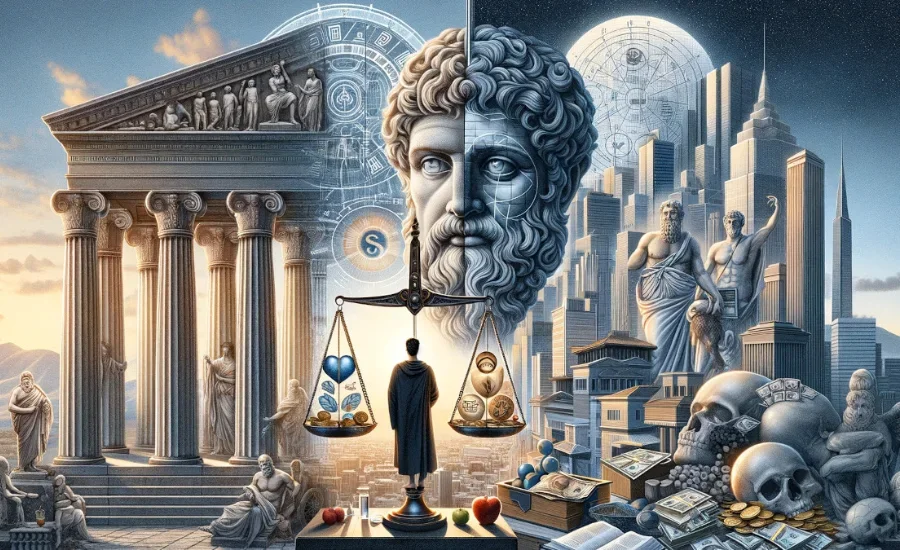Exclusivism: Historical Evolution, Principles, Benefits, & More
Exclusivism, as a concept, has permeated various aspects of human history, thought, and societal evolution. From religious ideologies to economic and social structures, exclusivism often finds itself at the core of debates concerning inclusion, belonging, and identity. While the term may appear to carry negative connotations in today’s world, its broader implications stretch far beyond any singular interpretation.
In this article, we will delve deep into the historical evolution of exclusivism, its principles, and how it has shaped different domains of human experience. Moreover, we will explore its potential benefits, the criticisms it has faced over time, and its relevance in today’s increasingly interconnected society.
The Historical Evolution of Exclusivism
The roots of exclusivism run deep into the annals of history. While it may have gained prominence in modern dialogues, its origins trace back to ancient civilizations, particularly in religious and social contexts.
Early Religious Exclusivism
Religious exclusivism refers to the belief that one particular religion or belief system is the sole truth, and all other systems are inherently flawed or false. This idea is not new; it can be found in the earliest forms of organized religion. Ancient civilizations such as the Egyptians, Mesopotamians, and Hebrews exhibited varying degrees of exclusivist beliefs. The Hebrews, for instance, believed in the concept of a singular, monotheistic deity, Yahweh, and saw this as the only true divine power.
As Christianity spread across the Roman Empire, exclusivism became more pronounced. The early Christian Church, particularly after becoming the state religion of Rome, proclaimed that salvation could only be achieved through belief in Christ. This set the stage for a form of spiritual exclusivism that would dominate much of the Western world for centuries. Similarly, Islamic theology also carried exclusivist undertones, with many believing that true salvation could only be achieved through the worship of Allah and adherence to the teachings of the Prophet Muhammad.
Exclusivism in Political and Social Systems
Exclusivism was not confined to religion alone. Throughout history, political systems have used exclusivist principles to define citizenship, governance, and power. Ancient city-states such as Athens and Sparta operated on an exclusivist basis, where full participation in political life was reserved for a select group of citizens—typically land-owning males—while others, such as women, slaves, and foreigners, were excluded.
During the feudal period in Europe, society was divided into rigid hierarchies, where only the nobility had access to power, wealth, and privileges. This created an exclusive class system that dictated one’s role and potential in society. Social exclusivism was also evident in the caste systems of ancient India, where one’s place in society was predetermined by birth, and mobility between castes was nearly impossible.
Exclusivism and Colonialism
Colonialism brought about a new form of exclusivism that was based on race, culture, and nationality. European powers, fueled by a belief in their superiority, often viewed non-European cultures as inferior. This form of exclusivism was used to justify the subjugation, exploitation, and sometimes extermination of indigenous populations across Africa, Asia, and the Americas. Colonial exclusivism fostered divisions not only between the colonizers and the colonized but also within the colonized societies themselves.
The 19th and early 20th centuries saw the rise of exclusivist ideologies such as nationalism and imperialism, which sought to elevate one nation or empire above others, often at the expense of global cooperation. These movements were often accompanied by racial and ethnic exclusivism, particularly in Europe, where ideas of racial purity and superiority took hold in countries like Germany, eventually leading to tragic events like the Holocaust.

Principles of Exclusivism
Exclusivism operates on certain key principles that distinguish it from more inclusive or pluralistic approaches. At its core, exclusivism is about differentiation and the creation of boundaries that define who belongs and who does not.
Boundary Formation
Exclusivism often manifests itself through the establishment of clear boundaries—be they religious, cultural, social, or economic—that separate an “in-group” from an “out-group.” These boundaries are typically rigid and hard to cross, reinforcing the idea that certain individuals or groups possess qualities, beliefs, or characteristics that make them superior or more deserving than others.
For example, in religious exclusivism, salvation or spiritual fulfillment may be viewed as accessible only to those who adhere to a specific doctrine. In a political context, citizenship may be limited to individuals of a particular nationality, ethnicity, or social class. In both cases, the boundary defines who is included in the benefits or privileges of the system and who is excluded.
Belief in Superiority
A common principle of exclusivism is the belief in the inherent superiority of the in-group. This belief can be based on various factors, such as race, religion, culture, or ideology. The in-group may view itself as having superior knowledge, values, or divine favor, which justifies its elevated status and the exclusion of others.
Historically, this principle has been used to justify practices such as slavery, apartheid, and segregation. In these instances, the superior group imposed its authority over others, often leading to exploitation, discrimination, and violence.
Resistance to Change
Exclusivism is often characterized by resistance to change or challenges to the established order. The exclusivist mindset tends to favor tradition, stability, and the maintenance of existing power structures. This resistance can be seen in the reluctance to grant equal rights to marginalized groups or the opposition to reforms that seek to create a more inclusive society.
The rigidity of exclusivist systems makes them inherently resistant to diversity and pluralism. Efforts to break down these barriers are often met with hostility or backlash, as the in-group perceives such changes as threats to its privileged position.

Benefits of Exclusivism
Though exclusivism is often criticized for fostering division and inequality, it has also been argued that there are potential benefits to such systems in certain contexts. These benefits are not universally applicable, but they offer insight into why exclusivism has persisted in various forms throughout history.
Preservation of Cultural Identity
One of the primary benefits of exclusivism is its role in preserving cultural identity. By maintaining clear boundaries and resisting outside influences, exclusivist groups can protect their traditions, customs, and values from being diluted or eroded by external forces. This can be particularly important for small or marginalized groups that fear assimilation or cultural extinction.
For example, some religious communities adopt exclusivist practices to preserve the purity of their beliefs and practices. By limiting membership to those who fully adhere to their doctrines, they ensure that their core values remain intact. Similarly, certain indigenous groups may practice cultural exclusivism to safeguard their way of life from the encroachment of globalization or modernity.
Social Cohesion and Stability
Exclusivism can also contribute to social cohesion and stability within the in-group. When members of a group share common beliefs, values, and experiences, they are more likely to develop strong bonds and a sense of unity. This can create a stable social structure where individuals feel a sense of belonging and mutual responsibility.
In political systems, exclusivism can help maintain order by establishing clear roles and responsibilities for individuals within society. A rigid hierarchy or caste system may prevent social unrest by ensuring that each person knows their place and the expectations associated with their status.

Efficiency in Governance and Decision-Making
Exclusivism can also lead to greater efficiency in governance and decision-making processes. In systems where power is concentrated in the hands of a few, decisions can be made more quickly and with greater coherence. This is often seen in autocratic or authoritarian regimes, where the ruling elite is able to make swift decisions without the need for extensive consultation or debate.
While such systems may limit individual freedoms, they can also provide a sense of stability and order, particularly in times of crisis or uncertainty. For example, during periods of war or national emergency, exclusivist political systems may be better equipped to mobilize resources and respond to threats than more inclusive or democratic systems.
Criticisms of Exclusivism
Despite its potential benefits, exclusivism has been widely criticized for the negative consequences it can produce. Critics argue that exclusivist systems are inherently unjust, divisive, and harmful to the broader social fabric.
Promotion of Inequality
One of the most significant criticisms of exclusivism is its promotion of inequality. By creating rigid boundaries between groups, exclusivism often leads to the marginalization and exclusion of certain individuals or communities. This can result in unequal access to resources, opportunities, and rights, perpetuating social, economic, and political disparities.
For example, racial exclusivism in the United States during the era of segregation led to the systematic oppression of African Americans, who were denied equal access to education, employment, and housing. Similarly, caste-based exclusivism in India has long been associated with discrimination and violence against lower-caste individuals.
Fostering Conflict and Division
Exclusivism is also criticized for fostering conflict and division between groups. By emphasizing the superiority of the in-group and the inferiority of the out-group, exclusivist systems create an “us vs. them” mentality that can lead to hostility, prejudice, and violence.
Throughout history, exclusivism has been at the root of many conflicts, including religious wars, ethnic cleansings, and genocides. The belief that one group is inherently superior to others has often been used to justify acts of aggression and domination, leading to widespread suffering and loss of life.
Suppression of Diversity
Another major criticism of exclusivism is its suppression of diversity. Exclusivist systems tend to favor homogeneity and conformity, discouraging or even punishing those who do not adhere to the established norms. This can stifle creativity, innovation, and social progress, as individuals are discouraged from expressing alternative viewpoints or challenging the status quo.
In religious contexts, exclusivism may lead to the persecution of heretics, dissenters, or minority faiths. In political systems, it can result in the suppression of political opposition and the erosion of democratic freedoms. By limiting the range of acceptable beliefs and behaviors, exclusivism ultimately hinders the growth and development of society as a whole.

Modern Applications of Exclusivism
Exclusivism continues to play a significant role in contemporary society, though its manifestations may differ from those of the past. Today, exclusivism is often seen in debates over immigration, nationalism, and identity politics, as well as in discussions about the role of religion in public life.
Nationalism and Immigration Policies
In recent years, exclusivism has been a central theme in discussions about immigration and nationalism, particularly in countries experiencing significant demographic changes. Many nationalists advocate for stricter immigration policies and the preservation of national identity, arguing that an influx of foreign cultures and traditions threatens the cohesion and stability of the nation.
This form of exclusivism is often framed as a defense of cultural or economic interests, with proponents emphasizing the need to protect jobs, resources, and social services for native-born citizens. However, critics argue that such policies are rooted in xenophobia and racism, and that they exacerbate divisions between different communities.
Religious Exclusivism in a Pluralistic World
Religious exclusivism remains a contentious issue in an increasingly pluralistic world. As societies become more diverse and interconnected, the challenge of reconciling exclusivist religious beliefs with the principles of tolerance and coexistence has become more pronounced.
Some religious groups continue to assert that their faith represents the only path to salvation, leading to tensions with other faith communities. In some cases, religious exclusivism has contributed to conflicts over the role of religion in public life, such as debates over religious symbols, education, and law.
Identity Politics and Social Movements
Exclusivism is also evident in the realm of identity politics, where individuals and groups seek to assert their identity and protect their interests in the face of perceived threats or marginalization. While identity-based movements can be empowering for marginalized communities, they can also lead to exclusivism, as groups prioritize their own interests over those of others.
For example, some feminist or LGBTQ+ movements have been criticized for excluding individuals who do not fit a particular ideological or cultural framework. Similarly, discussions about race and ethnicity can sometimes devolve into exclusivist rhetoric, with individuals prioritizing their own experiences of oppression over the experiences of others.
Conclusion
Exclusivism has been a defining feature of human history, shaping religious, political, and social systems across cultures and eras. While it can contribute to the preservation of cultural identity, social cohesion, and efficient governance, it also fosters inequality, conflict, and the suppression of diversity.
In today’s globalized world, exclusivism faces increasing scrutiny as societies grapple with the challenges of inclusion, tolerance, and coexistence. The tensions between exclusivist and inclusive approaches to governance, religion, and identity are likely to continue, as individuals and communities navigate the complexities of belonging and difference.
By understanding the historical evolution, principles, and consequences of exclusivism, we can better appreciate its role in shaping human experience and consider the ways in which we might foster more inclusive and equitable systems moving forward.





